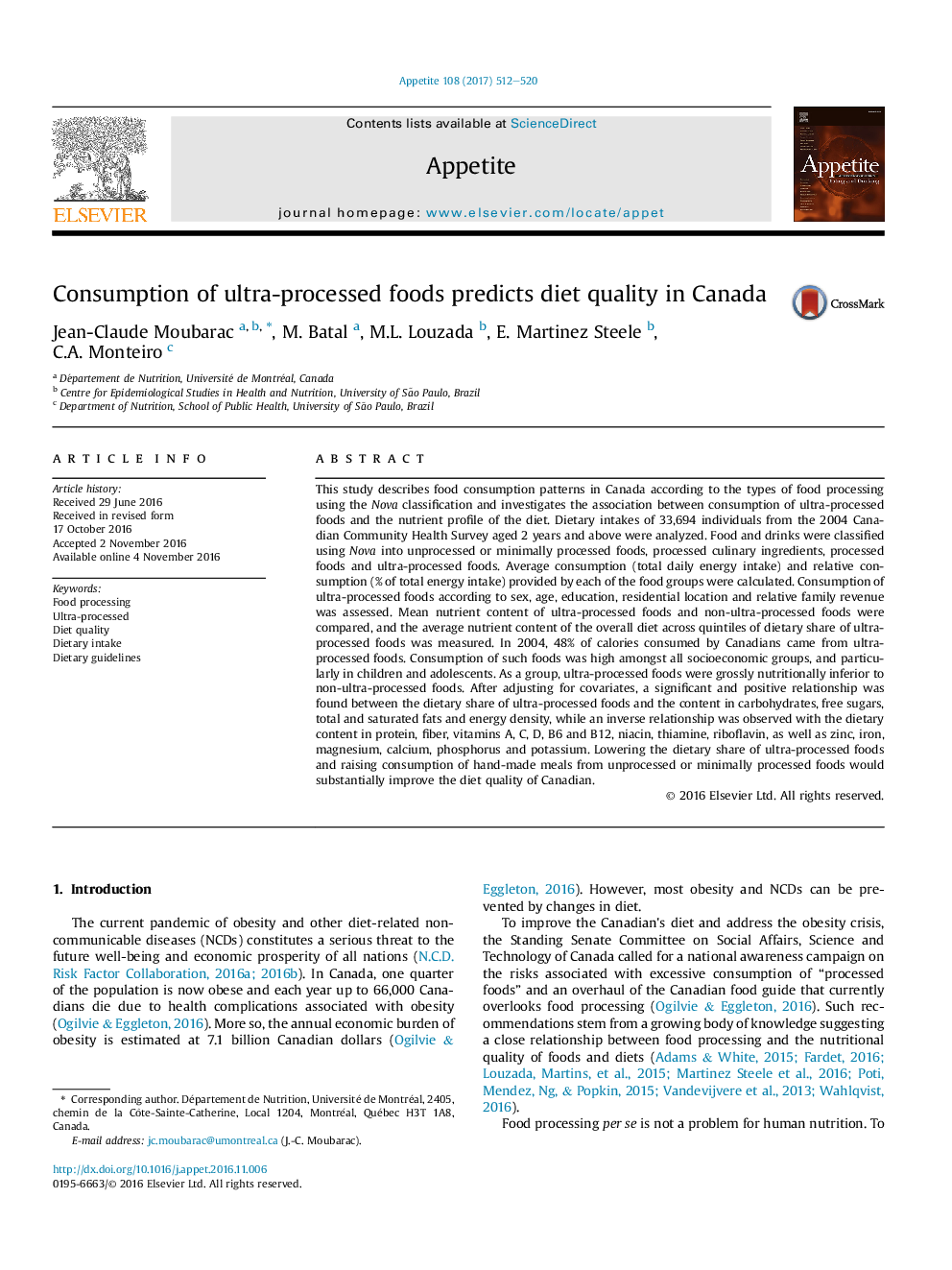| کد مقاله | کد نشریه | سال انتشار | مقاله انگلیسی | نسخه تمام متن |
|---|---|---|---|---|
| 5044442 | 1475372 | 2017 | 9 صفحه PDF | دانلود رایگان |
This study describes food consumption patterns in Canada according to the types of food processing using the Nova classification and investigates the association between consumption of ultra-processed foods and the nutrient profile of the diet. Dietary intakes of 33,694 individuals from the 2004 Canadian Community Health Survey aged 2 years and above were analyzed. Food and drinks were classified using Nova into unprocessed or minimally processed foods, processed culinary ingredients, processed foods and ultra-processed foods. Average consumption (total daily energy intake) and relative consumption (% of total energy intake) provided by each of the food groups were calculated. Consumption of ultra-processed foods according to sex, age, education, residential location and relative family revenue was assessed. Mean nutrient content of ultra-processed foods and non-ultra-processed foods were compared, and the average nutrient content of the overall diet across quintiles of dietary share of ultra-processed foods was measured. In 2004, 48% of calories consumed by Canadians came from ultra-processed foods. Consumption of such foods was high amongst all socioeconomic groups, and particularly in children and adolescents. As a group, ultra-processed foods were grossly nutritionally inferior to non-ultra-processed foods. After adjusting for covariates, a significant and positive relationship was found between the dietary share of ultra-processed foods and the content in carbohydrates, free sugars, total and saturated fats and energy density, while an inverse relationship was observed with the dietary content in protein, fiber, vitamins A, C, D, B6 and B12, niacin, thiamine, riboflavin, as well as zinc, iron, magnesium, calcium, phosphorus and potassium. Lowering the dietary share of ultra-processed foods and raising consumption of hand-made meals from unprocessed or minimally processed foods would substantially improve the diet quality of Canadian.
Journal: Appetite - Volume 108, 1 January 2017, Pages 512-520
